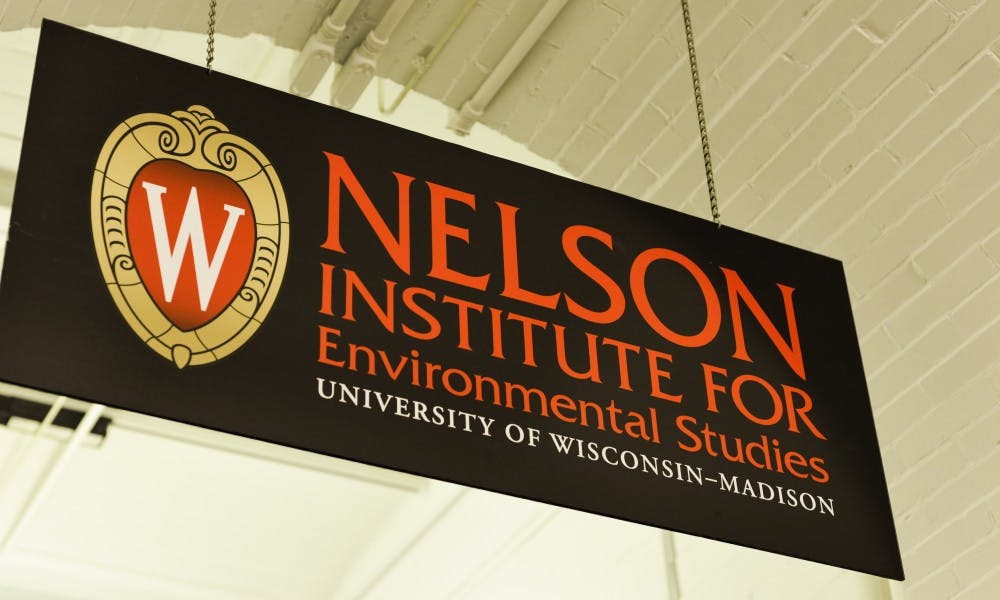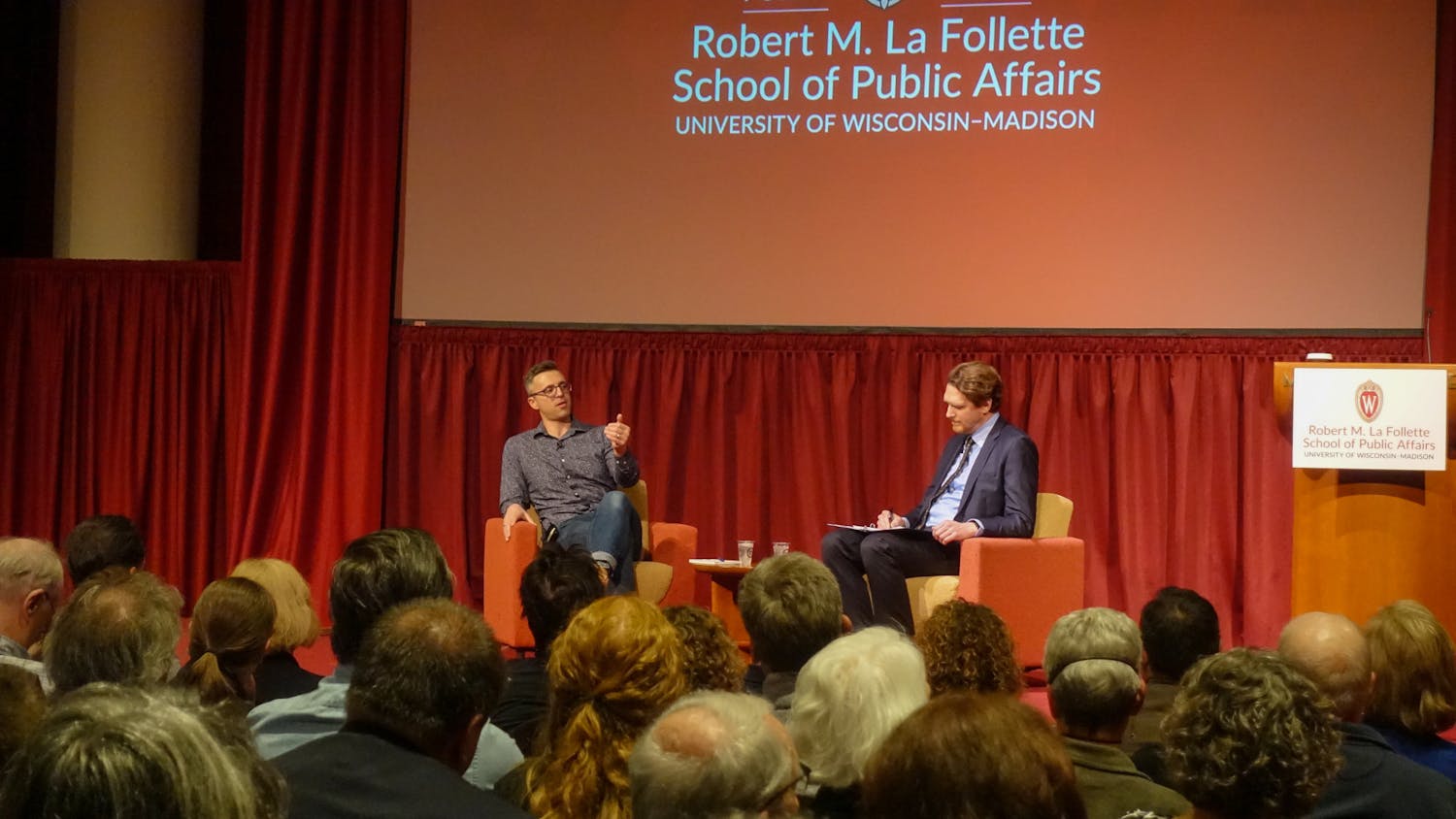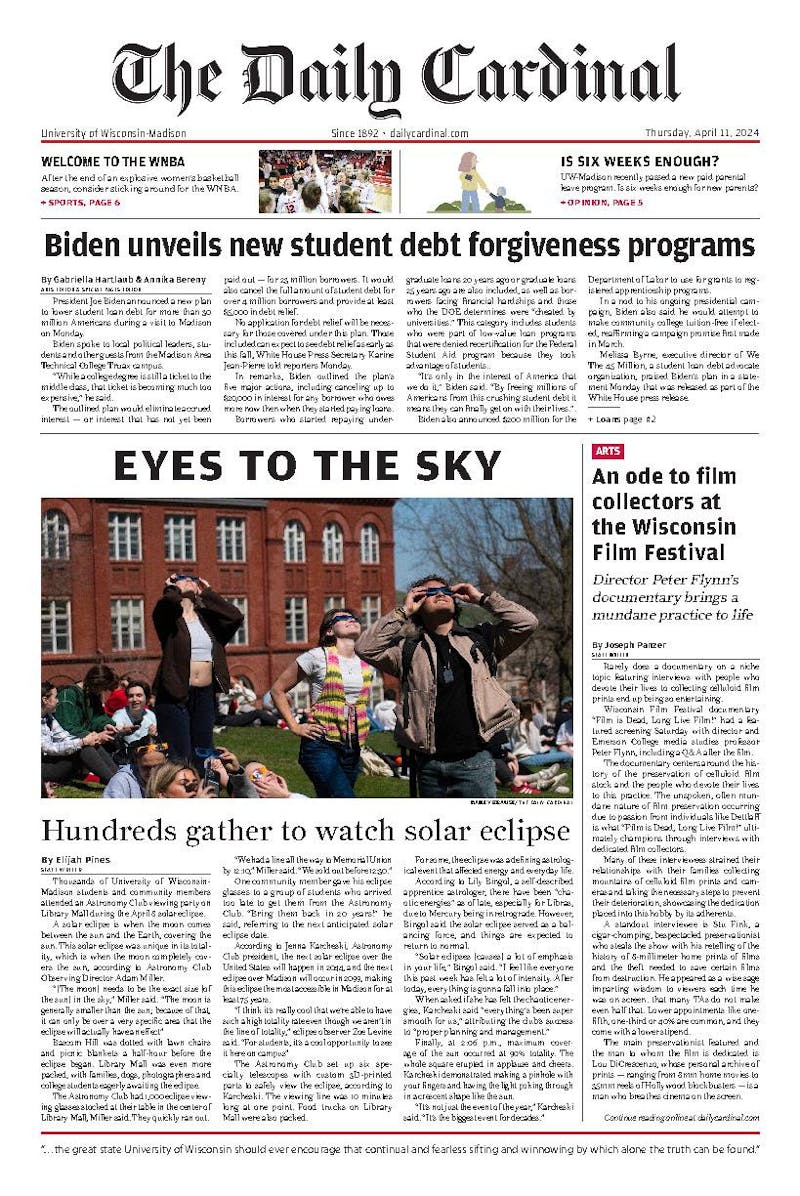The Menominee River winds southeast from Iron Mountain, MI, through densely forested
Today, the river forms a natural border between Wisconsin and Michigan’s Upper Peninsula, but for the Menominee Nation, it has always been a significant landmark.
“The mouth of the river is the site of the Menominee origin story, and our tribe’s history on that land goes back over 10,000 years,” said Annie Jones, UW Extension Tribal Nations liaison.
The river’s shoreline is dotted with villages and agricultural sites, as well burial mounds. Although the river is almost 60 miles east of the tribe’s current reservation, Jones said the Menominee still gather there to make tobacco offerings.
Now, the Menominee Nation is suing the Environmental Protection Agency and the Army Corps of Engineers for failing to protect the river that bears the tribe’s name from a potential sulfide mine 150 feet from the river’s edge, just across the border in Michigan.
“The waters of this interstate waterway dictate mandatory federal authority,” said Menominee Chairman Gary Besaw in his State of the Tribes Address Feb. 13.
The mine at the center of the lawsuit is Toronto-based Aquila Resources’ Back Forty Project. Besaw worries that construction at this location could mean the desecration and destruction of Menominee burial mounds, graves
“These open pits are giant, spiraling funnel-shaped holes in the ground. The mining starts at the surface ... and then it’s a matter of blasting and removing the rock and carefully sorting it,” said Phil Brown, a professor in the Department of Geoscience who studies ore deposits in the Lake Superior region. He said the process often unearths minerals that become toxic when they are exposed to surface conditions.
Besaw warned an open-pit sulfide mine located so close to the river would
Besaw said his tribe has inherited a responsibility to protect the waterway, part of a
“No mines near water. We have no choice,” Besaw said in his address. “That’s our moral ethic as tribal nations; these are our moral grounds and we have no choice but to stand and hold them.”
A new partnership between the Menominee Nation and The Nelson Institute may help advance the tribe’s current conservation goals while also exposing UW-Madison environmental studies students to Menominee land management traditions.
In a Spring 2018 capstone course headed by Jessie Conaway, co-chair of the UW-Madison Native Nations Working Group, students have been assigned to community projects selected by Menominee leadership.
Menominee River conservation is one of the areas the tribe has identified as an immediate priority, Conaway said.
In one project, students are compiling data from state and federal sources to support the Menominee Nation as it assesses the health of the river, according to Conaway. They are recording a current pulse of water quality, creating records of threatened and endangered species and observing how birds use the river as a flyway. Students are also looking at some of the policies that the Menominee Nation is either leveraging or being
In a separate capstone project, other UW students are working with the nation to develop surveys that will collect data on the mine’s perceived social, economic and environmental impacts in the communities near it.
“Community-based learning is a great way to promote this educational engagement, with partnerships for the students to work on
Conaway hopes her students gain a new cultural perspective through this work as well. They have opportunities to travel to the Menominee reservation, learn from community elders and see the tribe’s conservation ethic in action.
“
But Conaway says the benefits of programs like this one are not just limited to students and tribal members.
“When you talk about a river that’s part of the Great Lakes basin, obviously this benefits conservation of that interstate waterway that feeds Lake Michigan,” she said. “What's good for Menominee and other tribes in Wisconsin as far as conservation of resources goes, is also good for non-tribal neighbors and citizens. Water is blue gold. Moving into the future, it is for sure our most precious resource.”
According to Brown, water pollution would be one of the mine’s biggest environmental impacts.
“Mines like this would be the cleanest mines you could put together, but that does not guarantee there will not be problems,” he said.
Aquila Resources requested permits to address those pollution concerns in October 2015, and the Michigan Department of Environmental Quality approved all but one of them. The final permit — which would allow the company to impact up to 30 acres of regulated wetlands — is still pending, after the DEQ identified several errors and omissions in the company’s application.
In most cases, wetland permits like this one would be processed federally by the Army Corps of Engineers, on behalf of the EPA. However, a clause in the Clean Water Act allows the state of Michigan to issue those permits on a local level, so long as the wetlands in question do not abut tidal waters or waters used in interstate or foreign transportation.
The Menominee Nation argues that since the Menominee River is shared between Wisconsin and Michigan the DEQ does not have the authority to issue those wetland permits, according to the Jan. 22 complaint the tribe filed with the U.S. District Court of Eastern Wisconsin. The complaint alleges the EPA failed to oversee the permitting process.
“Because this is an interstate,
He also implored the state of Wisconsin to stand with his tribe in its efforts to oppose the mine.
“We are disappointed in our state’s inactions regarding the potential permitting of the Aquila Back Forty open-pit sulfide mine,” he said. “The State of Wisconsin seems to have given away the concerns of its citizens to another state.”
The tribe’s case is complicated because of the mine’s location. Despite
“The Wisconsin-side banks of the Menominee River near the mine site are much lower in elevation than the Michigan-side banks,” the DEQ said in a statement. “During the 100-year flood event, water would ‘spread out’ horizontally over onto the Wisconsin side, as the banks are lower than the 100-year flood elevation.” Significant groundwater contamination would also be unlikely, according to an Aquila Resources risk assessment statement.






